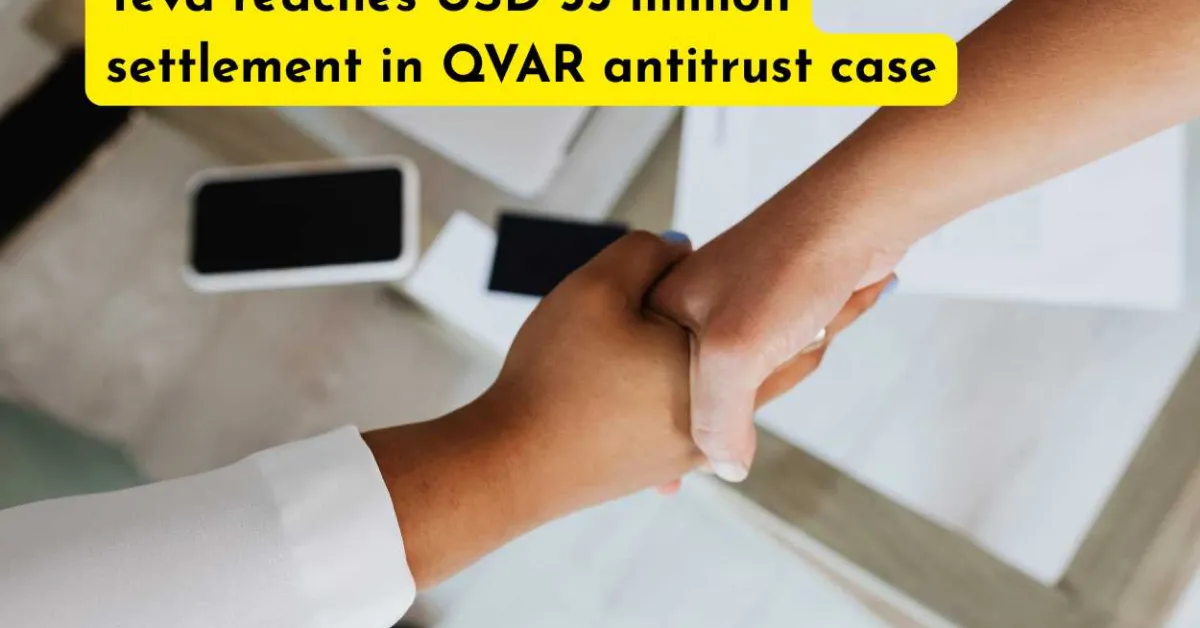Teva Pharmaceuticals USA, Inc., and affiliated companies have agreed to pay USD 35 million to resolve a class action lawsuit alleging that the drugmaker delayed generic competition for its asthma inhaler, QVAR (beclomethasone dipropionate HFA).
The proposed settlement, filed in the U.S. District Court for the District of Massachusetts, seeks preliminary approval from the court and certification of a settlement class consisting of end-payors, including consumers and third-party health plans, who purchased or paid for QVAR during the alleged period of inflated prices.
Under the agreement, Teva will deposit USD 35 million into an interest-bearing escrow account for distribution to class members. In addition to the monetary payment, Teva has agreed to request withdrawal of all patents currently listed in the FDA’s Orange Book for QVAR and related products.
According to the memorandum filed by plaintiffs’ counsel, the settlement provides both monetary and injunctive relief, addressing the core allegations that Teva engaged in conduct that delayed the entry of generic versions of QVAR.
The plaintiffs had accused Teva of improperly listing patents and using other tactics to block competition, resulting in higher costs to consumers and insurers. While Teva denies any wrongdoing, the parties reached a negotiated resolution after months of discussions that began in March 2025 and concluded in September 2025.
If approved, the agreement will resolve all claims against Teva and its affiliates in the case In re QVAR End-Payor Antitrust Litigation, No. 23-cv-11131 (NMG).
The proposed plan of allocation divides the settlement fund with 20.7% designated for consumer claimants and 79.3% for third-party payors. The plaintiffs’ memorandum notes that while the USD 35 million payment represents about 11% of the estimated damages, the outcome offers a fair and reasonable recovery given the risks and complexities of continuing the litigation.
The settlement remains subject to court approval following notice to class members and a subsequent hearing for final approval.














